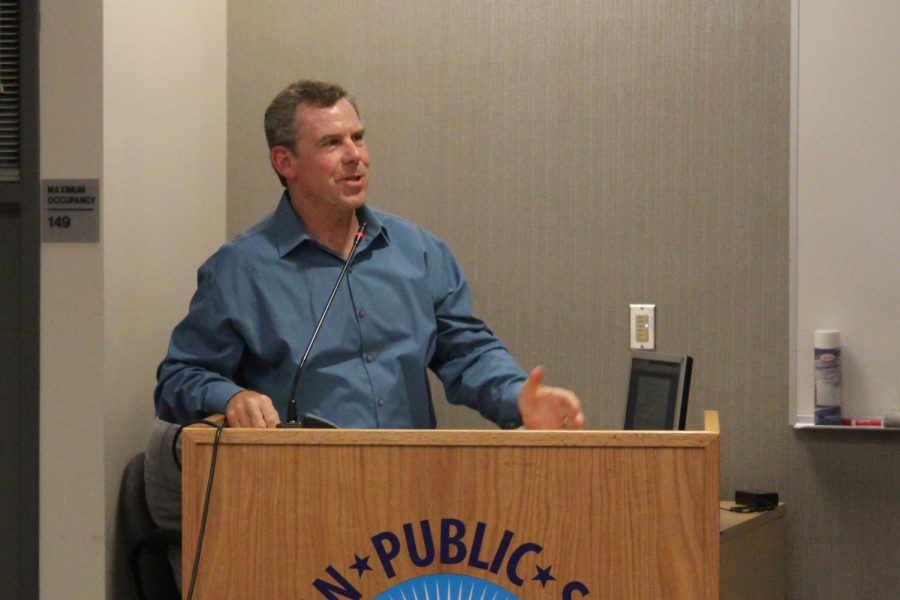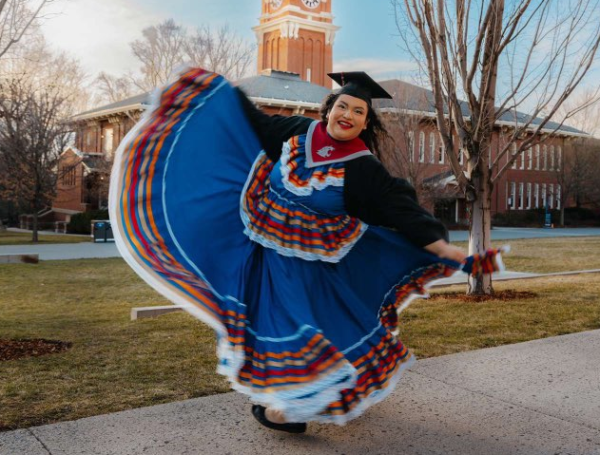Paraeducators receive 15 percent wage increase
Additional 2 percent will be added every year until August 2021
ASHLEY WILLIAMS | DAILY EVERGREEN FILE
Bob Maxwell, Pullman School District superintendent, said paraprofessionals work 180 days per school year and an additional two days to attend professional development sessions. The raise was a result of a decision in 2018.
February 1, 2019
Pullman School District paraprofessionals are receiving a wage increase of 15 percent with an additional 2 percent added every year until August 2021.
Bob Maxwell, Pullman School District superintendent, said paraprofessionals, also known as paraeducators or “paras,” are staff members who provide educational, emotional and social support to those who need it.
The job of a para can range from working as a librarian, being a support educator for special education students, or monitoring younger students at recess, Maxwell said. There are around 70 paras working in the district.
Yelonda Wilke, Pullman Paraprofessionals Association president, said paras are the first people a student sees when they go to school and the last people they see when they leave.
“They have the ability to impact students more than a teacher does because we work one on one,” Wilke said. “Paraeducators change the lives of the students they work with.”
Wilke said her union submitted a bargaining request and was met with silence despite several follow-ups. Maxwell said the Pullman district issued a reply, although it may have been later than expected.
Maxwell said the raise for paras was one result of the Washington State Legislature’s decision in 2018 to comply with the McCleary decision made in 2012.
“Some extra funds were set aside for public education,” he said. “One of the requests that came in from the paraprofessional group was to receive additional compensation.”
In September 2018, the agreement was accepted, and paras began to receive their raise in December, he said.
Maxwell said salaries are decided during a collective bargaining negotiation.
“We have meetings that are scheduled,” he said. “It’s a collaborative process.”
Wilke said Maxwell negated her union’s ability to bargain.
Wilke said the union, a group consisting of workers such as paraprofessionals, has the right to submit a demand for a bargain. The district must respond to the union with dates to begin bargaining.
“Paraprofessionals were the last bargaining union in this last contract round,” Maxwell said. “All other unions have their contracts in place.”
Maxwell said the agreement is then ratified by a majority vote conducted by the union.
The state-funded salary increases are similar to those that other school districts have received, Wilke said.
“There is a tremendous dissatisfaction of his treatment towards the Pullman educators, and that needs to change,” she said. “We needed to bargain, but we couldn’t take it to the table because it didn’t happen.”
Maxwell said based on the comments he has received, most paras are pleased with the negotiated agreement.
“We just really appreciate working with the paraprofessionals in a collaborative manner to come to an agreement that is beneficial to everyone,” he said.
Maxwell said paras work 180 days a school year, which is the same amount of days students attend school, as well as two additional days reserved for professional development sessions. The sessions include social and emotional faculty learning, as well as annual training requirements.



















